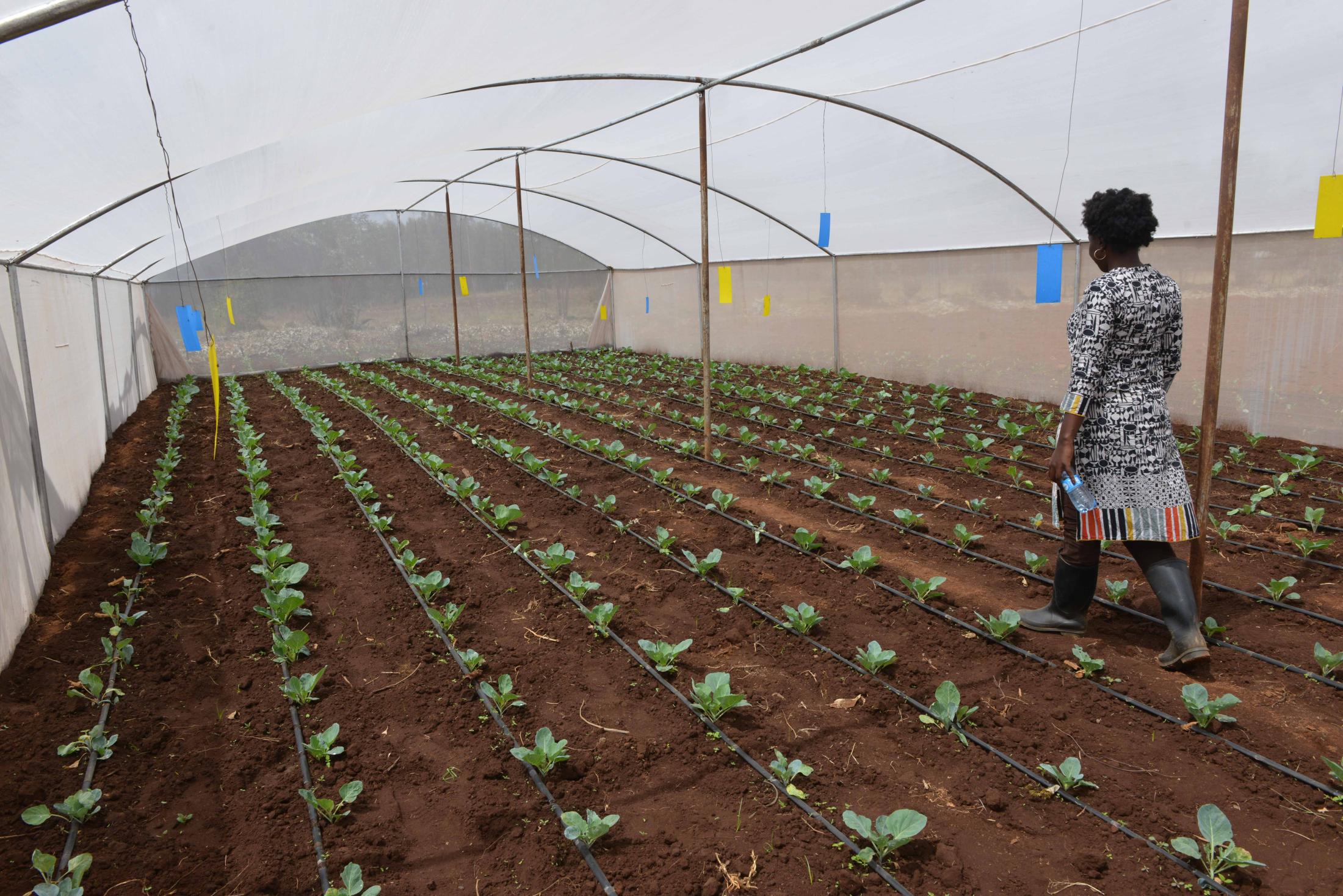
Research results show that using AgroNets (also known as Eco-Friendly Nets) in vegetable production leads to increased yields of marketable produce, while simultaneously reducing or eliminating the use of synthetic insecticides. In Kenya, the use of the nets with French bean, tomato and other high-value vegetable crops is of particular interest as this technology can help enhance exporter compliance with European Union requirements of minimum pesticide residue levels.
Vance Baird of Michigan State University leads a team of researchers who are examining the scaling potential of AgroNets, including looking at return on investment for various crops and the demographic characteristics of potential net adopters. They are also looking at barriers to sustained adoption of the technology by the target audience, including (a) broad awareness of the technology’s potential impact as well as availability, (b) grower access to innovative low-interest loans or savings schemes that provide the investment capital needed to purchase the technology and (c) long-term commitment and investment by the prime partner manufacturer to provide the AgroNets and address future designs improvements (wear and tear, bulk roll dimensions, support frames, etc.).
Working with a range of partners, including exporters, grower groups, smallholder farmers, private sector partners, commercial net manufacturers and biological control agent providers, the team identifies what information gaps exist in order to assess the best way to scale-up the technology. The team determines ROI and addresses identified information gaps, to inform decisions about scaling the technology.
